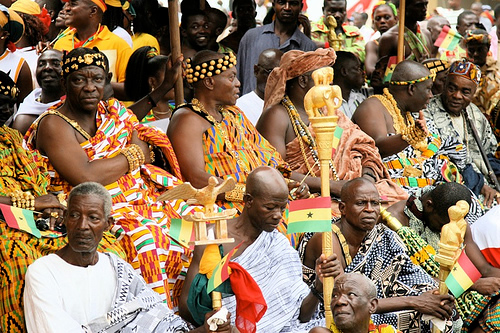Chieftaincy Minister-designate identifies 352 unresolved disputes

The Minister-designate for Chieftaincy and Religious Affairs, Mr. Samuel Kofi Dzamesi, has disclosed that there are 352 unresolved chieftaincy disputes in the country.
He therefore gave the assurance that if given the nod, the Ministry would resource the various Judicial Committees at the traditional councils to resolve those disputes.
In addition, he said, the Government would deplore legal counsels to the various traditional councils that did not have them to facilitate chieftaincy dispute resolution.
Mr Dzamesi made this known when he appeared before the Parliament’s Appointments Committee for vetting.
He said the Ministry would also support the codification of chieftaincy successions at the various traditional areas and assured that government would not interfere in enstoolment and enskinment of chiefs.
Addressing the assertion that the chieftaincy institution had lost its value, he said the chieftaincy institution was very much respected in society because chiefs were the custodians of the culture, and would, therefore, assist them to grow and contribute their quota towards national development.
Commenting on some cultural practices such as Female Genital Mutilation that infringed on the rights of people, he said there was a Research Department at the Ministry that had conducted extensive research into outmoded cultural practices and he would study the recommendations and revoke customs and practices that infringed on the fundamental rights of Ghanaians and encourage the good ones.
Mr. Dzemasi, a former Deputy Volta Regional Minister, revealed that paramount chiefs and queenmothers took GH¢500 and GH¢350 respectively as their monthly allowances, which he described as inadequate and assured that if the Finance Ministry make more funds available it would be increased.
Addressing the issue of some chiefs actively involved in politics, he said the Ministry would establish a Royal College where chiefs would be given tutelage on the laws of the country and provide them with the Code of Royal Ethics to guide their utterances and activities.
He said chiefs could play a crucial role in the country’s development agenda and when approved by Parliament, he would occasionally embark on royal visits to the various traditional councils to interact with them and solicit their views and factor them into formulation of policies and programmes.
Touching on the issue of religion, he said Ghana had enjoyed religious peace and would make strenuous efforts to deepen the religious freedom and peace through formulation of policies in that direction.
However, he said, the Government would not condone in any religious practice that violated the human rights of the congregation, saying ‘‘we will engage in faith-based consensus so that people will understand that everybody has the right to worship any God of his choice but must respect the rights of the people’’.
“Though there might be some charlatan religious bodies, we will be in touch with the Christian Council so that they will draw our attention to such bodies to avoid violating the rights of their congregation’’.
He noted that some religious bodies had supported the country in various ways including bringing in relief items through international relief agencies and would help them by facilitating the process.
Touching on problems assonated with the organisation of the annual Hajj, he said the issue pertained to the timing and noted that often they start preparation when the time was too close.
Therefore, he said, the President had instituted a Hajj Committee to deal with issues associated with Hajj to ensure success, adding, ‘‘there is also a Pilgrimage Committee for Christians who will like to visit the holy land’’.
Source: GNA
